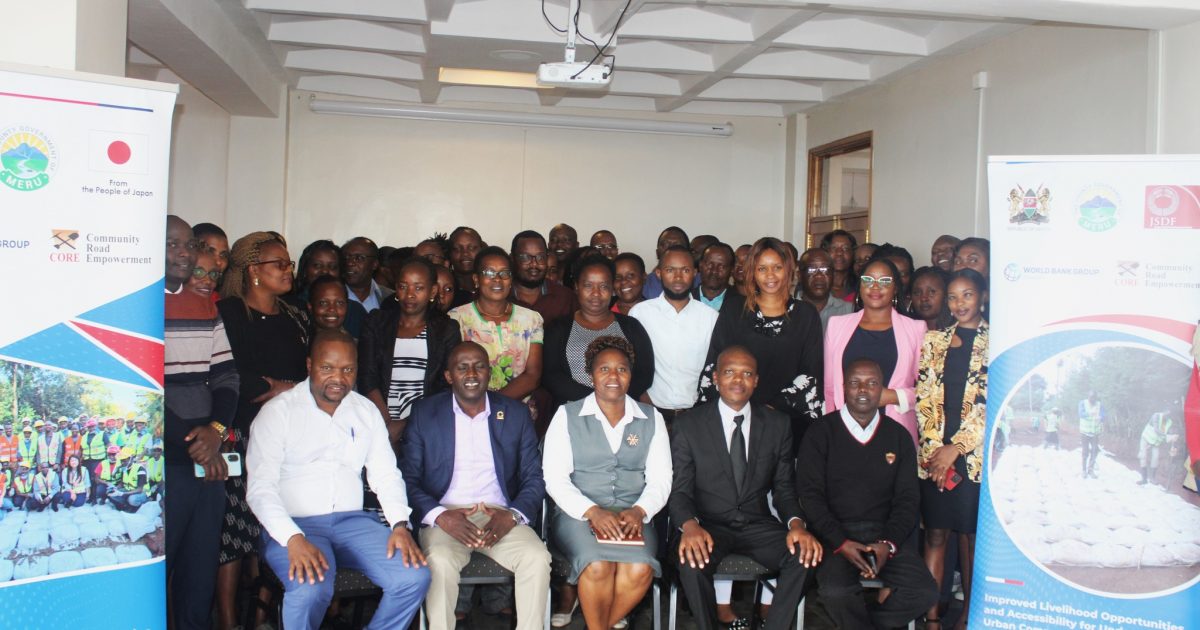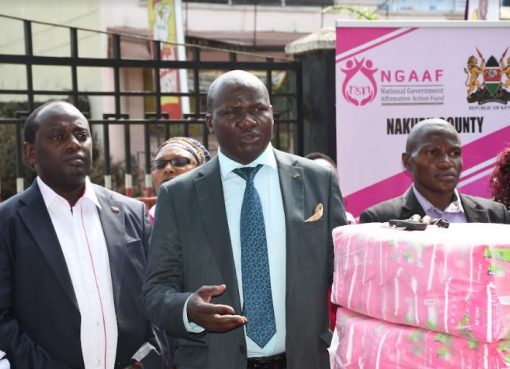Community Road Empowerment (CORE-Kenya), a non-governmental organisation in collaboration with the Japan Social Development Fund (JSDF), through the funding of the World Bank, held a three-day training forum for Meru County staff that was aimed at building their capacity in various fields of interest.
The forum was officially opened by the County Executive in charge of Lands, Physical Planning, Urban Development, Housing, and Public Works, Ms.Monica Kathono who lauded the collaboration between CORE and the County government which she said will eventually lead to resident’s accessibility to various important public facilities within Meru town.
During the first day, the staff drawn from various departments underwent training in various fields including workplace safety regulations, Occupational Safety and Health Act (OSHA) and the Work Injuries Benefits Act (WIBA).
According to CORE coordinator Mr Amos Biwott, the collaborative effort equips stakeholders with the knowledge to ensure worker safety, navigate legal requirements, and effectively address workplace accidents.
“Ultimately, this approach fosters long-term project success and CORE aims to enhance livelihood opportunities and accessibility for underserved urban communities in Mjini, Majengo, and Gitimbine,” said Mr Biwott.
So far, he added, the project has trained and equipped 875 beneficiaries with labour-based road maintenance skills, known as Do-Nou technology.
“In collaboration with the County Government of Meru, the project endeavors to train more youths in road rehabilitation, Small and Medium Enterprise (SME) registration, and other essential skills.
On day two facilitators from EACC Upper Eastern Region trained the participants on Ethics and Anti-Corruption Commission’s (EACC) mandate, legal framework, and the obligations of public and state servants under the Leadership and Integrity Act and Public Officer Ethics Act (POEA).
The interactive session provided valuable insights on the importance of corruption-free governance.
The training was wrapped up with insights into the public procurement and asset disposal act 2015 where participants were taken through various regulations that should be followed especially when procuring or disposing of public assets as well as methods of procurement.
The CORE project mainly focuses on young people who are improving 26 kilometres of access roads connecting the 23 kilometres of existing Eastern and Western bypasses.
The project’s first component entails capacity building and sustainability of labour-based road maintenance technology in the targeted communities.
The other components are the enhancement of livelihood opportunities, effective project and knowledge management, and monitoring and evaluation.
To achieve its mandate, CORE is also working closely with Kenya Urban Roads Authority, (KURA), Kenya Rural Roads Authority (KeRRA), and the Ministry of Roads and Transport.
By Dickson Mwiti





